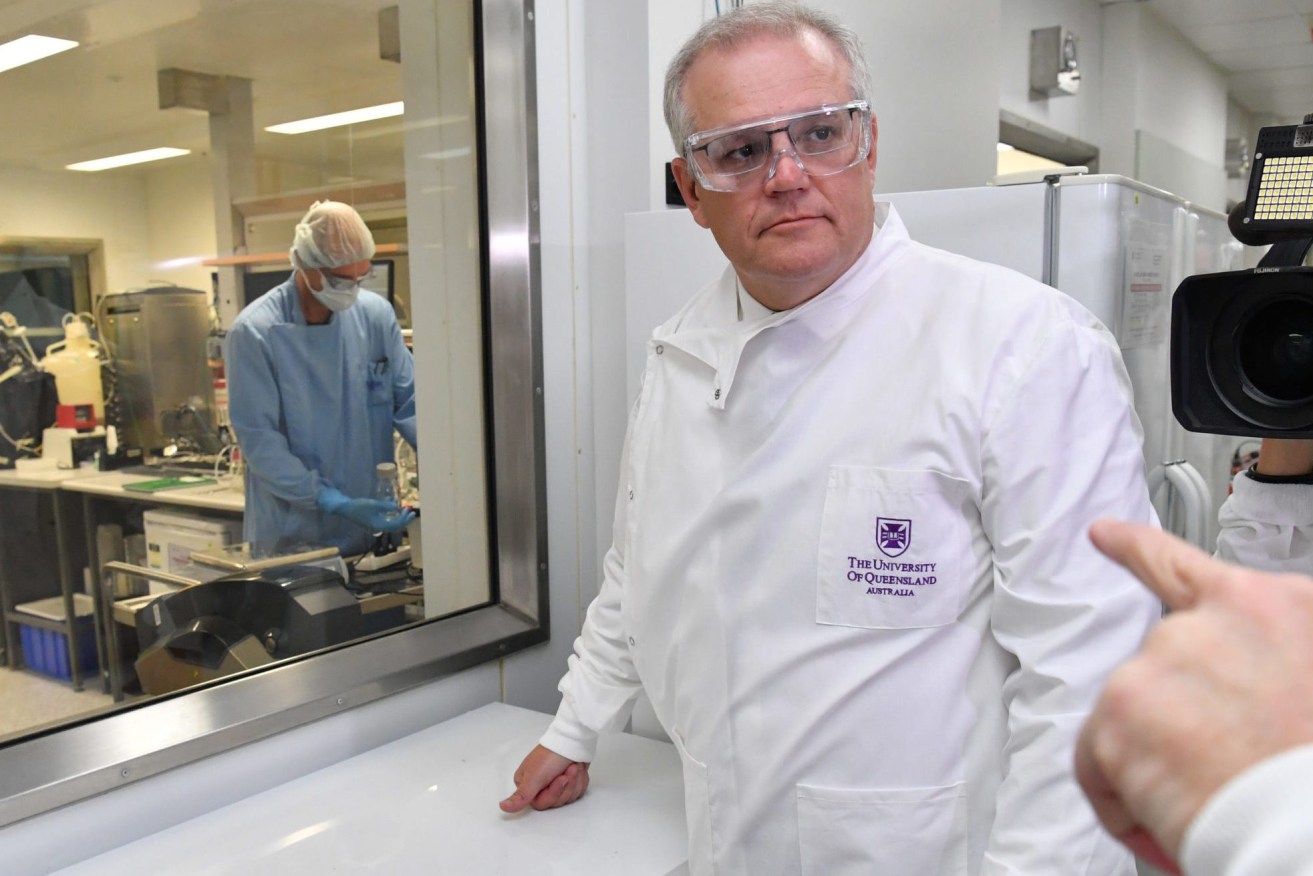Australia swings behind Oxford vaccine after ‘devastated’ UQ team misses its shot
Biotech giant CSL will produce another 20 million doses of the Oxford University coronavirus vaccine after agreeing to halt its work with the University of Queensland.

Prime Minister Scott Morrison after signing an agreement for Moderna vaccines to be manufactured in Australia. (Photo: AAP Image/Darren England)
Work on a home-grown vaccine for COVID-19 had shown promising results but researchers and public health officials were unable to mitigate an external impact: people who had the shot would also have recorded false positive results to HIV, due to the type of molecular clamp chosen for the vaccine design.
While there had always been the potential for such an outcome, the antibody response was bigger than expected, and the experts had been unable to find a workaround. As a result, the UQ and CSL team this week concluded with government officials that they could not embark on phase three trials with the existing vaccine candidate. To press ahead could have undermined broader public health efforts, and changing the design would have taken too long.
Dr Russell Basser from Seqirus, CSL’s vaccine company, said the need to maintain public confidence in vaccinations, and the broader health system, could not be underestimated. The decision came as other COVID-19 vaccines were being produced.
“I think it was a critical part of it,” Basser said.
“If there were no other vaccinations in the world, and this was the one potentially providing a solution to the COVID-19 pandemic, we might have persisted.”
Stakeholders tried to find alternative ways to screen for HIV but, with false flags in clinical trial participants evident for longer than they had hoped, Basser said “it seemed to get harder and harder the more we looked at it”
UQ’s Professor Paul Young said the outcome had “devastated” all those who had worked on the vaccine candidate this year.
“The last 24 hours or so have been particularly difficult for the team,” Young said, adding that the researchers’ families had also made sacrifices.
“The last 11 months we have been living and breathing this particular project. It’s challenging times but that’s science.”
CSL, which took only a minor hit to its share price, had already started manufacturing some 33.8 million doses of the AstraZeneca vaccine developed by Oxford University. It will now add another 20 million doses, while, separately, Australia will also boost its supply of the Novavax vaccine to 51 million doses.
Prime Minister Scott Morrison said the production changes were always an option under a strategy that considered four different vaccine candidates, the other being a Pfizer vaccine also being produced for Australia.
“I think what this demonstrates is the effectiveness of our strategy,” Morrison said today.
“And what we can do is vaccinate our population twice over. And we have one of the highest ratios of availability of doses of any country in the world.”
While Morrison applauded Australia’s research efforts, federal Health Minister Greg Hunt confirmed the UQ/CSL team would lose milestone payments as a result of being unable to complete their mission.
Federal Department of Health secretary Dr Brendan Murphy said Australians could still have faith in the rollout of vaccines next year.
“We knew that we didn’t want to have any issues with confidence, and this false-positive test may have caused some confusion and lack of confidence, but it was a very, very good technology, it was looking like it was going to make antibodies, and it probably would have worked very well as a vaccine,” Murphy said.
“But we can’t have any issues with confidence, and we are as a nation now, with a good portfolio of vaccines, able to make these decisions to best protect the Australian people.”












